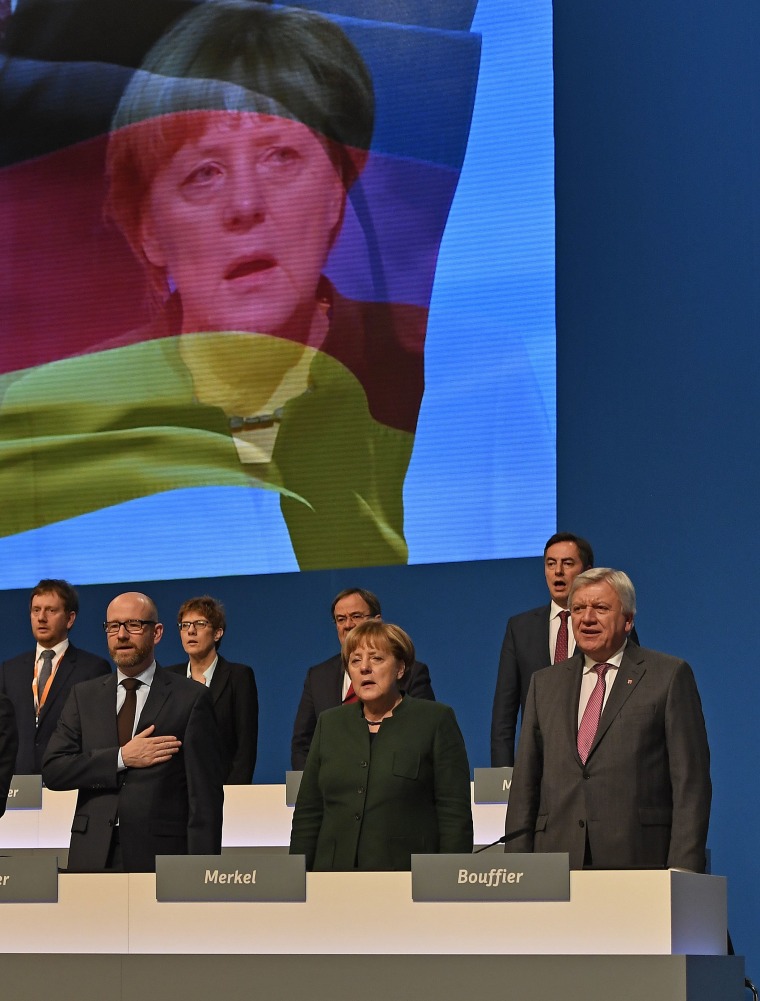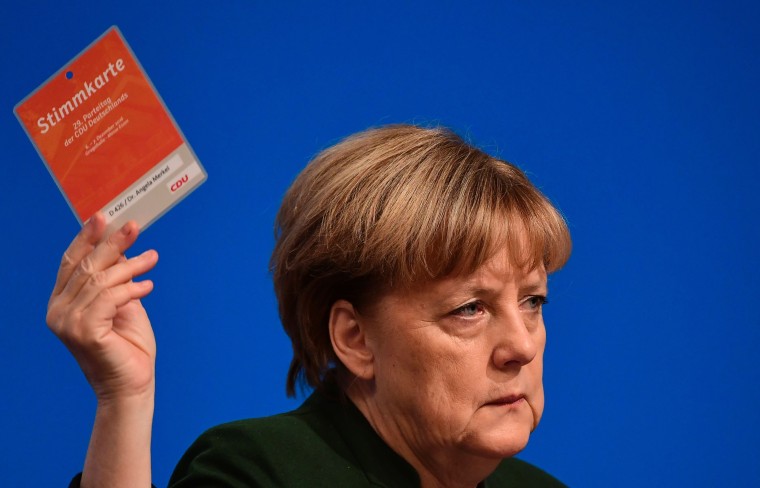ESSEN, Germany — After a year in which established political leaders have fallen like skittles, Angela Merkel has launched her reelection bid against a backdrop of criticism within her own party and the rising popularity of far-right politics in Germany.
Ranked by Forbes as the second most powerful person in the world after Russia's Vladimir Putin, Merkel is seen by many as the last bulwark against rampant populism that has already defeated Hillary Clinton, Britain's David Cameron and Italy's Matteo Renzi.
Both chancellor Merkel and her center-right Christian Democrat (CDU) took a dive in popularity following her "open door" policy, which welcomed nearly one million refugees fleeing the Middle East and Africa to Germany.
Related: Angela Merkel Calls for Ban of Full Facial Veiling
However, her approval ratings have begun to recover after she toughened her stance on immigration and on Tuesday she was reelected leader of the CDU, winning 89.5 percent of delegates' votes.
CDU leaders believe Merkel has no serious challenger, but many within her party remain nervous.
“Angela, you are needed in Europe,” Joseph Daul, president of the CDU-affiliated European People’s Party and member of the European parliament said at the opening of this week’s conference.
The outcome of the conference held in the western German city of Essen, formally clears her path to contesting next year's national election.

Applauding from the floor was 65-year old Karl-Heinz Sundheimer from the western German town of Kempenich, who told NBC News that a majority of CDU members “and many Germans from other parties” believe that Merkel remains “the best solution.”
Sundheimer, who has been a CDU member for 33 years, said he and many of his fellow voters are increasingly concerned about anti-European, anti-immigration tendencies in Germany, which has seen strong gains in regional elections for the populist, far-right AfD party. This change could also endanger coalition-building for a Merkel-led government next year.
The CDU leads in the polls, but would likely have to work with mainstream rivals to form the next government.
Following her “open door policy” in 2015, Merkel began to face strong political headwinds and harsh criticism, even from some members of her own party.
Arguing that Merkel should have never let the refugee crisis happen, Christine Arlt-Palmer, a local CDU politician from the state of Baden-Wuerttemberg, said the chancellor and the party had allowed "the populist AfD to grow on the right — we will not regain this terrain."

Merkel attempted to reassure delegates this week, saying that “a situation like that of the summer 2015 can and should not repeat itself.”
CDU member Sundheimer hopes the party can adopt a clear policy on immigration and find better solutions to protect the idea of pan-European cooperation.
On Wednesday, delegates debated a resolution on tackling forced marriage and voted to scrap rules allowing the children of immigrants to be dual citizens.
This week’s party conference is “not a crowning ceremony” for Merkel and there are signs of “insecurity among party members”, experts say.
“The delegates are extremely uncertain on how to counter the globalization fears at the party basis,” Karl-Rudolf Korte, a political analyst and the president of the NRW School of Governance, told ZDF.
“Many questions, doubtful answers, open scenarios … because worldwide, there is no master plan on how to keep down populism,” Korte added, highlighting an icy political wind that is blowing across Europe.
Over the course of this year, Merkel has lost many of her key European allies: Britain’s David Cameron resigned after the shock Brexit vote, Italy’s Renzi quit after a failed constitutional referendum and French president Francois Hollande announced that he would not seek re-election.
Merkel acknowledged this in her speech, saying many people "feel that the world is in disarray.”
"2016 hasn't made the world stronger and more stable, but rather weaker and more unstable,” she said. "The 2017 election will be more difficult than any election before, at least since German reunification.”
But for some analysts, Merkel is the only remaining leader of the old order who can defend the European idea.
“Among the major nations, Germany stands alone as the bulwark of the liberal order established after World War II in order to prevent German-style fascism from destroying Europe’s peace once again,” James Traub wrote in Foreign Policy magazine.
